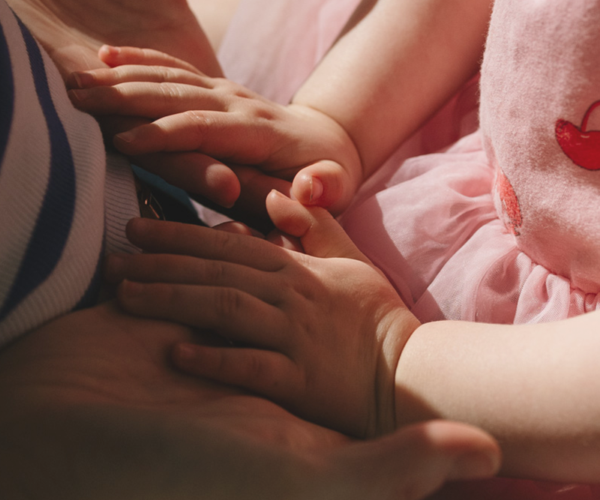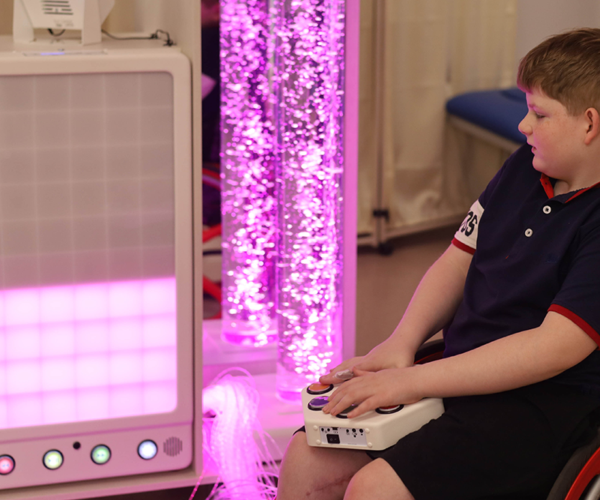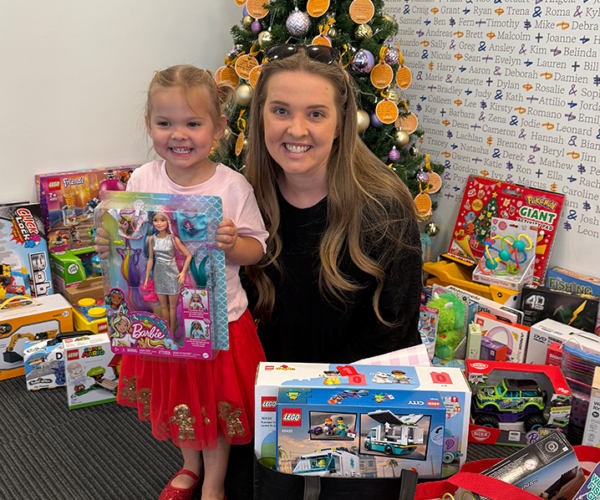Becoming a parent is a life-changing journey filled with joy, challenges, and endless learning. However, it can also be a time when mental health risks are heightened.
Recognising the need to support parents during this critical period, Dr. Sarah Hunter, of Flinders University and Preventive Health SA, along with a team of researchers across academia and healthcare, established the Caring for Caregivers project, which was supported by the WCH Foundation through a 2023 Health Translation SA Medical Research Future Fund Catalyst Grant.
The project aimed to develop and test a wellbeing program tailored to parents and carers as they make the transition to parenthood. It was co-designed with Child and Family Health Services (CaFHS) staff and users, underpinned with tailored evidence-informed content. This collaborative approach ensured that the program was responsive to real-world needs whilst ensuring effectiveness.
Research shows that parents often hesitate to seek mental health or wellbeing support, fearing stigma or judgment. Yet, the wellbeing of parents is strongly linked to the health and development of their children. By empowering parents to prioritise their mental health, the program aimed to create a ripple effect, benefiting entire families. Existing antenatal classes and CaFHS parent groups were an ideal opportunity for the team to test their idea, ensuring it was practical to include, while also being acceptable to parents and carers.
A strengths-based program
The 1-2 hour sessions, delivered through antenatal classes at the Women’s and Children’s Hospital and at existing CaFHS parenting groups, used a strengths-based approach. This meant that the program focused on what could support parents to feel better, rather than on what might be causing them distress.
The program included content focusing on:
- Understanding mental health, parenting and seeking support.
- Navigating societal norms and individual experiences.
- Building and strengthening social connections.
- Empowering self-worth and developing self-care strategies.
- Accessing services and seeking help.
Real impact, in the real-world
The Caring for Caregivers project is now complete, having been delivered to over 70 families across three different sites. Seven sessions were delivered as part of the CaFHS parenting groups in one metro site and one country site.
The Caring for Caregivers session was delivered as the third week of the parenting group, allowing time for parents and facilitator to establish relationships and trust. A further four Caring for Caregivers sessions were delivered as an optional and additional antenatal class at the Women’s and Children’s Hospital.
Feedback was very positive, with parents and staff finding the content and resources provided acceptable. Importantly, parents and carers had open and honest conversations about mental health, much more than is usually the case in these settings. This highlights the program’s potential to reduce stigma and empower parents to seek help when needed.
Dr Hunter says, “This project was amazing to be part of. Through true collaboration, we were able to bring evidence to the frontline to help parents in their own mental health and wellbeing.”
“To see that the program was engaging and resonated for parents was incredible. I cannot wait to see this program implemented more broadly.”
Dr Hunter and the team hope that in future this content might be sustained within antenatal and early parenting education in order to lay a strong foundation for the future health and happiness of families.
Through partnerships and needs-driven research like this, the WCH Foundation continues to make a meaningful difference in the lives of women, children, and their families. Your support can help ensure more projects like Caring for Caregivers become a reality.
Self-care tips for parents and carers, from Caring for Caregivers project lead, Dr Sarah Hunter
Take a break. Taking a moment to yourself for a quiet cup of tea or a short walk can fill your cup, making it easier to cope through the busier times.
Be kind to yourself. Show yourself the same compassion you might show a friend when they are going through a similar experience.
Take care of your physical health. Eating nutritious food and getting some exercise is great for your body and mind. Keep it simple – try snacks such as fruit, nuts, or yoghurt, and try parking a little further from your destination.




